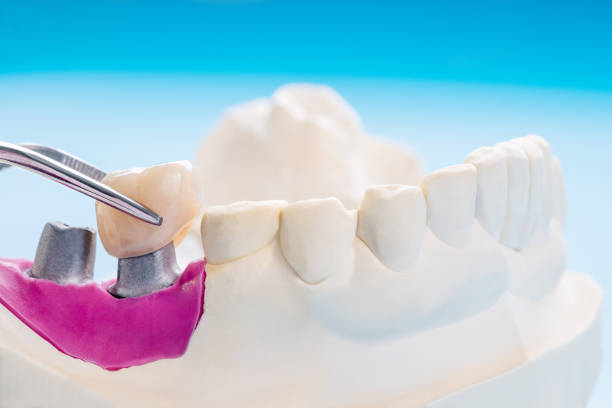Dental Implants Explained: Types, Costs, and Treatment Guide
What Are Dental Implants and Why Consider Them?
Have you lost a tooth and wondered what options are available to restore your smile and chewing ability? Dental implants offer a long-lasting and natural-looking solution. In this article, we break down everything you need to know about dental implants—from basic structure to treatment steps, costs, and aftercare.
What Are Dental Implants?
Dental implants are artificial tooth roots made of biocompatible materials (usually titanium) that are surgically placed into the jawbone to support crowns, bridges, or dentures.
Key Components:
- Fixture: The screw placed into the bone
- Abutment: The connector that supports the crown
- Crown: The visible part resembling a natural tooth
Dental implants differ from dentures or bridges in that they are fixed, do not rely on surrounding teeth, and integrate with the bone.
Types of Dental Implants
One-piece vs Two-piece Implants
- One-piece: Abutment is integrated
- Two-piece: Fixture and abutment are separate (more flexible for alignment)
Immediate Load Implants
- Enable placement of crown soon after surgery
Materials
- Titanium: Strong, commonly used
- Zirconia: Metal-free, aesthetic, suitable for allergies
Treatment Process & Timeline
- Consultation: X-rays, CT scan, medical history check
- Surgery: Implant placed (may require bone graft)
- Healing: 3–6 months of osseointegration
- Prosthetic: Abutment and crown placement
Pain is manageable and often described as minor. Anesthesia is used, and post-operative care ensures comfort.
Costs and Insurance
Typical Costs
- Per implant: $2,000–$5,000 USD (varies by region, clinic, and material)
What's Included
- Consultation, surgery, components, crown, aftercare
Insurance
- Most dental implants are not covered by public insurance
- Some private plans may partially reimburse
Caution: Avoid selecting solely based on price—consult reputable clinics.
Benefits and Drawbacks
Benefits
- Natural appearance
- Strong chewing function
- Long lifespan (10–20+ years)
Drawbacks
- Surgical procedure required
- Costly investment
- Not suitable for all (bone loss, smokers, chronic disease)
Aftercare and Maintenance
- Daily brushing and flossing
- Avoid smoking and excessive alcohol
- Regular dental visits (every 6 months)
Poor hygiene can lead to peri-implantitis, which may cause failure.
FAQs
Q1: Are dental implants permanent? → With proper care, they can last decades.
Q2: Does the procedure hurt? → Local anesthesia reduces discomfort; post-op pain is mild.
Q3: Can implants be done at any age? → Suitable for adults with fully developed bones; teens usually not recommended.
Q4: Can I travel with implants? → Yes. Just maintain oral hygiene and regular check-ups.
Conclusion: Are Dental Implants Right for You?
Dental implants are an excellent solution for many people, but they’re not one-size-fits-all. Talk to a qualified dental professional, compare options, and ensure the treatment matches your health, budget, and expectations.
